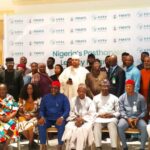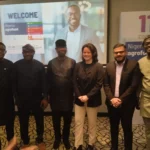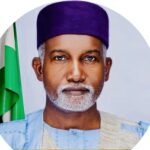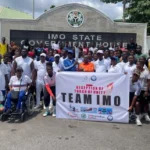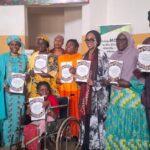By Florence Onuegbu
The United Nations Women and the Lagos State Government say they are collaborating to increase women’s participation in contract bidding.
Speaking during a Stakeholders Consultative Meeting at Ikeja, the Lagos State Head of Service, Mr Hakeem Muri-Okunola, said that women deserved all the encouragement and support of the state government, to enable them benefit more from opportunities in government’s procurement plans.
The Stakeholders Consultative Meeting had the theme: ”Affirmative Procurement for Women-owned Businesses in Lagos State”, and was organised by the UN Women, in collaboration with the Lagos State Public Procurement Agency.
Muri-Okunola said there was need to ensure that competitiveness, inclusiveness, transparency and accountability, which were the distinguishing characteristics of a sound public procurement regime, were not compromised in the public procurement system.
Represented by Mrs Oluyemi Kalesanwo, Permanent Secretary, Lagos State Ministry of Women Affairs and Poverty Alleviation, he said that the state government was always concerned about issues affecting women and other vulnerable groups.
According to him, respective administrations in Lagos have formulated various policies and implemented many programmes that are specially designed to promote gender equity, women empowerment and increased access to social services by the vulnerable and others within these categories of the society.
”It has been generally acknowledged that women have the potentials for making positive contributions to the socio-economic development of societies and nations.
”Indeed, quite a number of women have proved their mettle in various professions, vocations and businesses, thereby contributing to the progress of mankind and the task of nation building, locally and internationally.
”It is also a widely held view that, given the right environment, opportunities and support to operate, women can do much more than they are currently doing in business and other areas of human endeavour,” he said.
In his goodwill message, the Lagos state Commissioner for Finance, Dr Rabiu Olowo, said that the Gov. Babajide Sanwo-Olu led administration believed strongly in the policy of inclusivity, to enable all strata of society to contribute to government’s programmes and also benefit from opportunities in government.
Olowo, who is also the Chairman, Lagos State Public Procurement Agency, said that the government would leave no stone unturned to ensure that women, youth and the old were economically advantaged.
He said that it was the desire of the administration to accelerate growth and development of the state, which could only be achieved when all residents, within productive age of the society were encouraged and empowered to engage in fruitful activities.
”Women are known to be imbued with a resilient spirit, a factor which makes them a force to be reckoned with in the informal sector of the economy of the state,” Olowo said.
In his welcome address, the Director-General, Lagos State Public Procurement Agency, Mr Fatai Onafowote acknowledged that the involvement of women in the procurement process was low.
Onafowote said that the enabling Law of the agency – the Lagos State Public Procurement Agency Law 2021 – does not discriminate against any gender.
He said that the law mandated PPA to regulate public procurement in the state, ensure due process, accountability and value-for-money in government’s expenditure on goods and services provided for residents of the state.
”Hence, public procurement in the state has been largely concerned with ensuring inclusiveness, competitiveness and transparency, which give equal right to all registered contractors and service providers, regardless of their gender.
”But this can only be done through a deliberate policy of the State Government.
”Therefore, for the agency to implement a deliberate policy that will give special considerations to women-owned businesses in the award of contracts as being advocated by UN Women, there is the need to make relevant provisions in the enabling Law of the agency,” Onafowote said.
Mrs Patience Ekechukwu, Programme Officer, Women’s Economic Empowerment, UN Women Nigeria said that women-owned/led businesses were a growing share of all enterprises in many African countries.
Ekechukwu said that public procurement represented an attractive market for women entrepreneurs, since it accounted for 15 to 30 per cent of GDP globally.
She said that public procurement created market opportunities that had long been recognised as an engine for growth for small and medium enterprises.
According to her, yet women-owned Small and Medium Enterprises (WSME) are severely underrepresented as suppliers, securing only an estimated one per cent of procurement contracts.
”In Nigeria, women remain under-represented as entrepreneurs accessing public procurement opportunities. Furthermore, most women-led businesses are in the informal sector, which excludes them from the participation threshold outlined in the Public Procurement Act.
”The Act requires businesses, which seek to supply public goods and services to be formally registered. Since most women-led businesses are unregistered and function within the informal economy, they are automatically excluded.
”Also, there are other requirements relating to tax and annual turnover, which most women entrepreneurs do not meet either.
”Other common barriers encountered by women in accessing public procurement include, corruption, bribery, favoritism/nepotism in government structures, including in the form of sexual harassment and gender-based violence.
”Similarly, women entrepreneurs very often, encounter difficulties due to limited information around the drafting of bids and lack technical capacities to execute the contract,” she said. (NAN)(www.nannews.ng)
Edited by Vivian Ihechu



